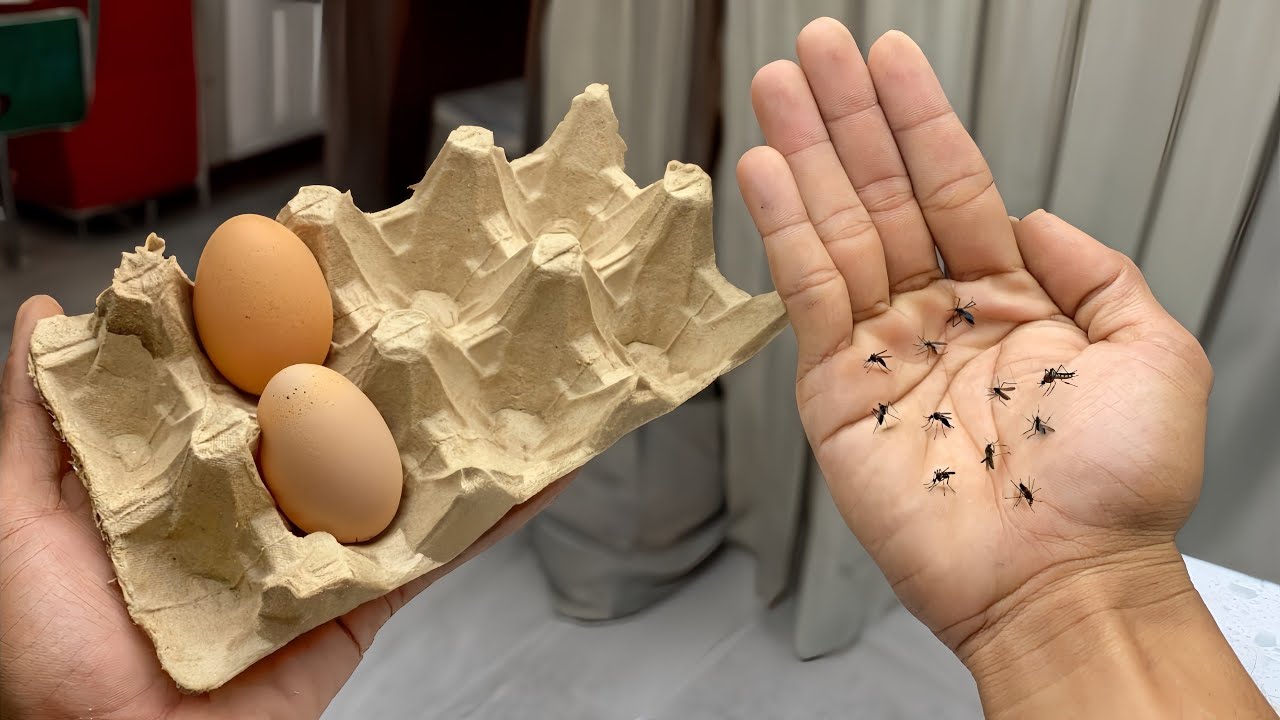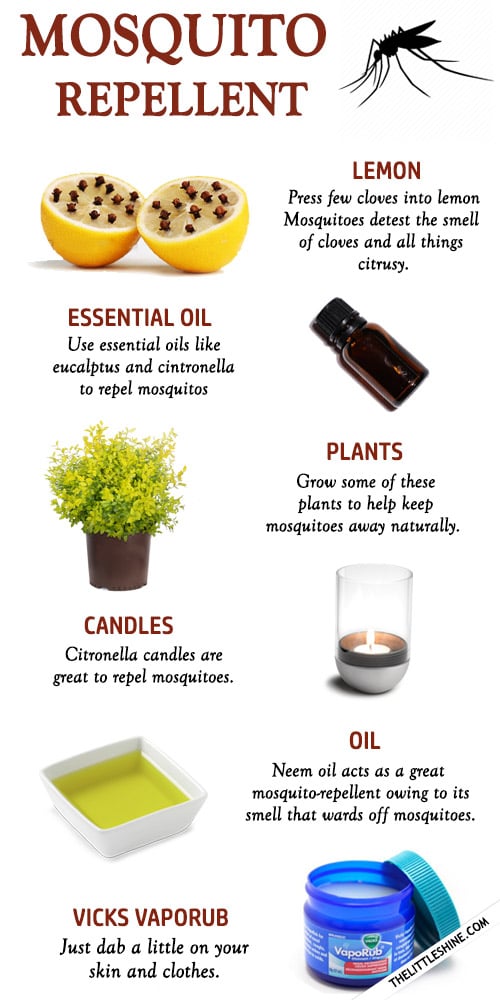Cloves As Mosquito Repellent: A Natural Solution For Pest Control
Mosquitoes are not just annoying; they carry diseases that can severely impact human health. In the quest for effective and safe mosquito repellents, cloves have emerged as a natural and affordable solution. Derived from the dried flower buds of the Syzygium aromaticum tree, cloves offer a powerful aromatic compound that repels mosquitoes effectively. If you're looking for an alternative to chemical-based repellents, this article will guide you through the science, benefits, and practical applications of using cloves as mosquito repellent.
As the world becomes more conscious of the environmental impact of chemical-based products, natural remedies are gaining popularity. Cloves, with their strong scent and active compounds, are increasingly being used in households worldwide. This natural remedy not only helps keep mosquitoes at bay but also ensures a safer environment for you and your family.
This comprehensive guide will delve into the effectiveness of cloves as mosquito repellents, backed by scientific research and practical tips for usage. By the end of this article, you'll have a thorough understanding of how cloves can be integrated into your pest control strategies.
- Taylor Swift Super Bowl Biden
- What Is The Coquette Aesthetic
- Michael Jordan Disapproves Of Larsa Pippen
- Tim Walz Family Supporting Trump
- Wendys 50 Piece Nugget For 10
Table of Contents
- Introduction to Cloves as Mosquito Repellent
- Understanding the Biology of Cloves
- The Science Behind Cloves and Mosquitoes
- Benefits of Using Cloves as a Mosquito Repellent
- Effective Methods to Use Cloves
- Cloves vs Chemical Repellents
- Safety Considerations
- DIY Recipes for Clove-Based Repellents
- Environmental Impact
- Conclusion and Call to Action
Introduction to Cloves as Mosquito Repellent
Cloves, known scientifically as Syzygium aromaticum, have been used for centuries in traditional medicine and culinary practices. However, their potential as mosquito repellents is a relatively new discovery. The active compounds in cloves, such as eugenol, caryophyllene, and flavonoids, contribute to their insect-repelling properties. These compounds not only deter mosquitoes but also provide additional health benefits.
One of the key advantages of using cloves as mosquito repellents is their accessibility. Unlike chemical repellents, which may require special storage or handling, cloves can be easily incorporated into everyday life. Whether used in oil form, as whole buds, or in incense, cloves offer versatile options for pest control.
Why Choose Natural Remedies?
The growing awareness of the adverse effects of chemical-based products has led many people to seek natural alternatives. Natural remedies like cloves are not only safer for humans but also better for the environment. By choosing cloves as mosquito repellents, you contribute to a healthier planet while protecting yourself from mosquito-borne diseases.
- Ending Of The Sopranos Explained
- Taylor Swift And Boyfriend
- Mori Lee Wedding Dresses
- Who Is Dating Meghan Trainor
- How Did Connor Die Southern Charm
Understanding the Biology of Cloves
Cloves are the dried flower buds of the Syzygium aromaticum tree, native to the Maluku Islands in Indonesia. The tree thrives in tropical climates and is widely cultivated in countries such as India, Madagascar, and Sri Lanka. The unique composition of cloves includes essential oils that are responsible for their strong aroma and medicinal properties.
Key Components of Cloves
- Eugenol: A major compound in clove oil, eugenol is known for its antiseptic and analgesic properties.
- Caryophyllene: This compound contributes to the spicy aroma of cloves and has anti-inflammatory effects.
- Flavonoids: These antioxidants enhance the overall health benefits of cloves.
Understanding the biology of cloves is essential to appreciate their effectiveness as mosquito repellents. The combination of these compounds creates a potent barrier against insects, making cloves a valuable asset in pest control.
The Science Behind Cloves and Mosquitoes
Research has shown that the essential oils in cloves possess insect-repellent properties. Eugenol, in particular, interferes with the sensory systems of mosquitoes, making it difficult for them to locate hosts. Studies conducted by the American Mosquito Control Association highlight the efficacy of clove oil in repelling mosquitoes for up to two hours.
How Cloves Work
When applied topically or diffused into the air, clove oil creates a protective shield that masks human scents. Mosquitoes rely on carbon dioxide and body heat to locate their prey, but the strong aroma of cloves disrupts this process. Additionally, the antibacterial properties of cloves help prevent infections caused by mosquito bites.
Benefits of Using Cloves as a Mosquito Repellent
Using cloves as mosquito repellents offers numerous benefits beyond just keeping pests away. Below are some of the advantages:
- Safe for Human Use: Cloves are non-toxic and gentle on the skin when used in diluted forms.
- Environmentally Friendly: Unlike chemical repellents, cloves do not contribute to environmental pollution.
- Affordable: Cloves are widely available and cost-effective, making them accessible to everyone.
- Health-Promoting: The essential oils in cloves provide additional health benefits, such as reducing inflammation and boosting immunity.
These benefits make cloves an attractive option for those seeking natural pest control solutions.
Effective Methods to Use Cloves
There are several ways to incorporate cloves into your mosquito control strategy. Below are some practical methods:
1. Clove Oil Diffusion
Using a diffuser to spread clove oil into the air is one of the most effective ways to repel mosquitoes indoors. Simply add a few drops of clove oil to your diffuser and let it run for a few hours. This method is especially useful during the night when mosquitoes are most active.
2. Clove Infused Water
Boil whole cloves in water and let the mixture cool before applying it to exposed skin. This natural spray not only repels mosquitoes but also leaves a pleasant aroma.
3. Hanging Cloves
Place whole cloves in a small sachet and hang it in areas prone to mosquito infestations, such as porches or gardens. The strong scent will deter mosquitoes naturally.
Cloves vs Chemical Repellents
While chemical repellents like DEET are effective, they often come with potential health risks. Prolonged use of these products can cause skin irritation, respiratory issues, and even neurological damage. In contrast, cloves offer a safer alternative without compromising efficacy.
Key Differences
- Chemical Repellents: Strong and long-lasting but may pose health risks.
- Cloves: Natural, safe, and effective for short-term use.
For those who prioritize safety and sustainability, cloves are a superior choice for mosquito control.
Safety Considerations
Although cloves are generally safe, it's important to use them responsibly. Essential oils should always be diluted before applying them to the skin to avoid irritation. Additionally, pregnant women and individuals with sensitive skin should consult a healthcare professional before using clove-based products.
Tips for Safe Usage
- Always dilute clove oil with a carrier oil, such as coconut or almond oil.
- Perform a patch test before using clove oil on large areas of skin.
- Store clove oil in a cool, dark place to maintain its potency.
By following these guidelines, you can enjoy the benefits of cloves without any adverse effects.
DIY Recipes for Clove-Based Repellents
Creating your own clove-based repellents is easy and fun. Below are two simple recipes to get you started:
1. Clove Oil Spray
- Ingredients: 10 drops of clove oil, 1/4 cup of distilled water, 1/4 cup of witch hazel.
- Instructions: Combine all ingredients in a spray bottle and shake well before use. Apply to exposed skin and reapply every two hours.
2. Clove Sachet
- Ingredients: 10-15 whole cloves, muslin fabric, ribbon.
- Instructions: Place the cloves in the center of the muslin fabric, gather the edges, and tie with a ribbon. Hang the sachet in areas where mosquitoes are a problem.
Environmental Impact
Cloves are a sustainable choice for mosquito control as they do not contribute to environmental pollution. Unlike chemical repellents, which can harm aquatic life and soil quality, cloves break down naturally without leaving harmful residues. By choosing cloves, you support eco-friendly practices and contribute to a healthier planet.
How Cloves Benefit the Environment
- Biodegradable and safe for ecosystems.
- Reduce reliance on synthetic chemicals.
- Promote biodiversity by encouraging the use of natural resources.
Making the switch to cloves not only protects your health but also supports environmental conservation efforts.
Conclusion and Call to Action
Cloves offer a natural, safe, and effective solution for mosquito control. With their powerful insect-repelling properties and numerous health benefits, cloves are a valuable addition to any household. By incorporating cloves into your pest control strategies, you can enjoy a mosquito-free environment without compromising your health or the planet's well-being.
We encourage you to try the DIY recipes and methods outlined in this article and share your experiences with us in the comments section below. For more tips on natural pest control and wellness, explore our other articles and stay informed about the latest trends in health and sustainability.
Together, let's make a difference by choosing safer and more sustainable alternatives for our daily lives.
Article Recommendations
- That Is 70s Show
- Tokyo Toni Real Name
- Is Kylie Jenner White
- The Cleaning Lady Arman Death
- Megan Fox Kids Transitioning



Detail Author:
- Name : Foster Zboncak
- Username : robert66
- Email : wking@yahoo.com
- Birthdate : 1970-07-23
- Address : 311 Wiegand Club South Gerardomouth, MA 92585-9288
- Phone : (857) 907-2573
- Company : Donnelly-Heaney
- Job : Healthcare Support Worker
- Bio : Ut tenetur magni nisi. Quia est qui nobis qui sint ipsa dignissimos qui. Temporibus voluptas animi dolorum tempora dolorem voluptatibus.
Socials
instagram:
- url : https://instagram.com/boylej
- username : boylej
- bio : Autem amet error et nemo. Cupiditate voluptatem sint ducimus sed recusandae aperiam vero.
- followers : 1470
- following : 1312
linkedin:
- url : https://linkedin.com/in/jeramie.boyle
- username : jeramie.boyle
- bio : Voluptas cupiditate hic vel et.
- followers : 6402
- following : 1833